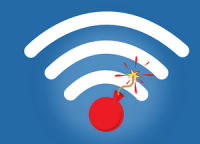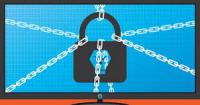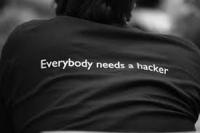-
China: Determined to dominate cyberspace and AI
China is chasing dominance in emerging artificial intelligence (AI) technologies in both the private and military sectors, as a central part of its effort to be the leading global cyber power, Chris C. Demchak writes in the Bulletin of the Atomic Scientists. The rise of AI – a subset of cyber as are machine learning, quantum computing, and other new technologies – does not herald a new arms race equivalent to that of the Cold War. Rather, the concern should be on the profound disruption to the existing Westernized global order. In the 1990s, Western nations, led by the United States, created what Demchak calls a “Westernized national creation”: cyberspace. Cyberspace, however, has created a multitude of ubiquitous, embedded vulnerabilities whose easy exploitation directly accelerated the rise of an otherwise impoverished authoritarian and aggressive China. Today, no single democracy has the scale and sufficient resources alone to match the foreknowledge and strategic coherence of the newly confident and assertive China. There is thus a need to create a Cyber Operational Resilience Alliance (CORA) to provide the scale and collective strategic coherence required to ensure the future wellbeing and security of democracy in an overwhelmingly authoritarian, post-Western, cybered world.
-
-
Studying Russian disinformation campaigns
An interdisciplinary research team from communications, anthropology, and political science will study Russian disinformation campaigns in three former Soviet republics as part of a $1.6 million Minerva research grant awarded through the U.S. Department of Defense.
-
-
Tech fixes cannot protect us from disinformation campaigns
More than technological fixes are needed to stop countries from spreading disinformation on social media platforms like Facebook and Twitter, according to two experts. They argue that policymakers and diplomats need to focus more on the psychology behind why citizens are so vulnerable to disinformation campaigns.
-
-
Enabling more comprehensive tests on high-risk software
We entrust our lives to software every time we step aboard a high-tech aircraft or modern car. A long-term research effort has developed new tools to make this type of safety-critical software even safer.
-
-
New Zealand, France leading an effort to ban terrorists from social media
New Zealand and France will host a meeting with technology companies and world leaders to develop a strategy to block terrorists from social media. The meeting comes in the wake of the March shootings at two mosques in Christchurch.
-
-
White supremacists use social media aid, abet terror
Before carrying out mass shooting attacks in Pittsburgh and New Zealand, white supremacist terrorists Robert Bowers and Brenton Tarrant frequented fringe social networking sites which, according to a new study, serve as echo chambers for the most virulent forms of anti-Semitism and racism, and active recruiting grounds for potential terrorists.
-
-
Can WiFi networks be completely secure?

There are many ways in which hackers and crackers can break into a Wi-Fi network. It is trivial if the network uses out of date security protocols or weak passwords. But even if the system is set up with the latest security measures, strong passwords, and firewall and malware protection, there are still ways and means that a malicious third party might access such a network.
-
-
Actively used private keys on the ethereum blockchain facilitate cryptocurrency theft

Researchers at Independent Security Evaluators (ISE) have discovered 732 actively used private keys on the Ethereum blockchain. The researchers also found that poorly implemented private key generation is also facilitating the theft of cryptocurrency.
-
-
Sri Lanka attacks: government’s social media ban may hide the truth about what is happening
Sri Lanka has temporarily banned social media and messaging apps in the wake of the coordinated Easter Sunday attacks on churches and hotels across the country, which killed at least 290 people. The ban is ostensibly to stop the spread of misinformation – but in Sri Lanka Facebook and social media platforms generally have created a positive space for public conversation that did not exist before. Shutting down social media, leaving its citizens reliant on state messaging and a weak and beaten down form of journalism, the government now risks preventing Sri Lankans from finding out the truth about what is happening in their fragile and delicately balanced country.
-
-
Can artificial intelligence help end fake news?
Fake news has already fanned the flames of distrust towards media, politics and established institutions around the world. And while new technologies like artificial intelligence (AI) might make things even worse, it can also be used to combat misinformation.
-
-
Deterring Russian intimidation and aggression: Unconventional approaches

Amid concerns that Estonia, Latvia and Lithuania are vulnerable to Russian intimidation and hybrid warfare, experts conclude that unconventional defense plans could help deter and counteract Russian aggression.
-
-
Identifying new way to improve cybersecurity

With cybersecurity one of the nation’s top security concerns and billions of people affected by breaches last year, government and businesses are spending more time and money defending against it. Researchers have identified a new way to improve network security.
-
-
There’s a massive cybersecurity job gap – we should fill it by employing hackers

Cybersecurity incidents are gaining an increasingly high profile. These attacks are becoming increasingly sophisticated, using psychological manipulation as well as technology. To face these challenges, society needs cybersecurity professionals who can protect systems and mitigate damage. There is already an active population with a strong passion for cybersecurity – hackers.
-
-
Social media networks aid, abet white supremacist terrorism: Study

A new study reveals how fringe social media sites such as Gab, 4 Chan and 8chan act like virtual “round-the-clock white supremacist rallies” where hateful notions of Jews and other minorities are openly espoused and closely associated with violence as a solution.
-
-
Russia targeted Sanders supporters, pushing them to vote for Trump

As part of Russia’s broad 2016 effort to ensure Donald Trump’s victory in the presidential election, Russian hackers targeted supporters of Senator Bernie Sanders (I-Vermont), following his primary loss in 2016, trying to push them to vote for Donald Trump instead of Democratic nominee Hillary Clinton. Daren Linvill, the Clemson University researcher who conducted the research of the Russian campaign, said the Russians saw Sanders as “just a tool.” “He is a wedge to drive into the Democratic Party,” resulting in lower turnout for Clinton, he said.
-
More headlines
The long view
Researchers Develop AI Agent That Solves Cybersecurity Challenges Autonomously
New framework called EnIGMA demonstrates improved performance in automated vulnerability detection using interactive tools.
